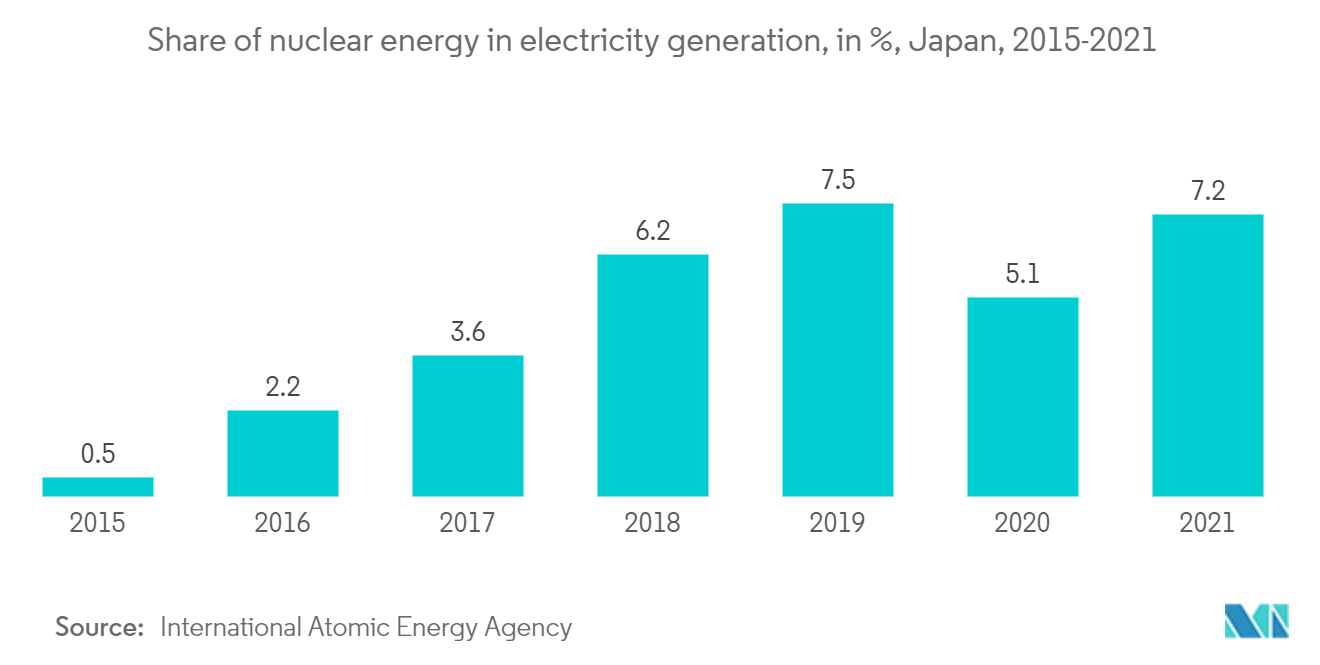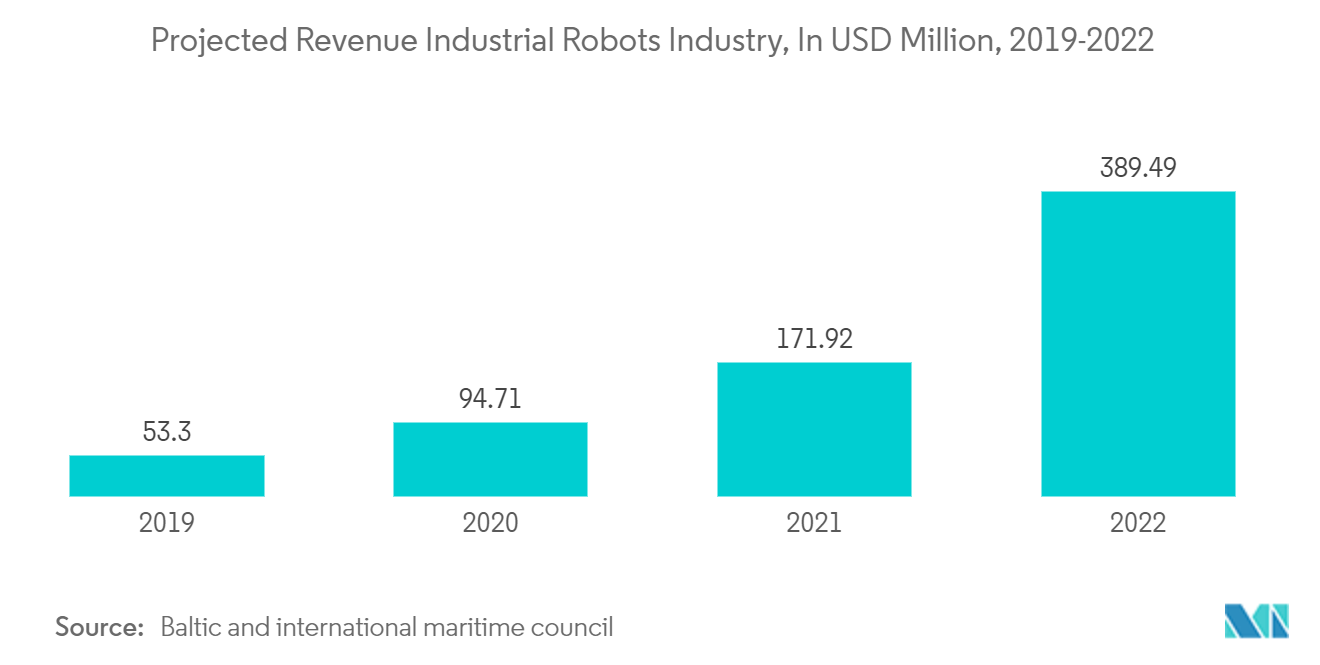Market Trends of Japan Factory Automation and Industrial Controls Industry
This section covers the major market trends shaping the Japan Factory Automation & Industrial Controls Market according to our research experts:
Distributed Control Systems are Expected to Witness a Significant Market Growth
- Distributed Control Systems (DCS) are process-oriented platforms that rely on a network of interconnected sensors, actuators, and controllers, terminals to act as a centralized master controller for a facility's production operations. Resultantly, a DCS focuses on controlling and monitoring processes and allowing facility operators to see all facility operations in one place. DCS enables the implementation of advanced process automation strategies as it operates on a closed-loop control platform. Thus, DCS is suitable for controlling operations at a single facility or factory. Further, a DCS is crucial for maximizing the visibility of a facility's everyday operational processes.
- The control architecture includes a supervisory level of control, overseeing multiply-integrated sub-systems, responsible for controlling the details of a localized process. They are connected to sensors and actuators and utilize setpoint control to control material flow through the plant.
- One of the important benefits of the DCS systems is that the digital communication between workstations, distributed controllers, and other computing elements follows the peer-to-peer access principle. These prerequisites have driven the adoption of DCS, as these systems provide lower operational complexity, project risk, and functionalities like flexibility for agile manufacturing in highly-demanding applications. The ability of DCS to integrate PLCs, turbomachinery controls, safety systems, third-party controls, and various other plant process controls for heat exchangers, feedwater heaters, and water quality, among others, further drives the adoption of DCS in the energy sector.
- With Japan's growing demand for energy, the interest in constructing new power plants over the next 15 to 20 years has increased. This has challenged the nuclear industry to provide a high construction volume. A key strategy to meet this challenge is developing an advanced nuclear power plant design that allows for modular construction, a high level of standardization, passive safety features, a reduced number of components, and a short bid-to-build time. Resultantly, it offers lucrative opportunities for the growth of the studied market.
- There is also an increase in the usage of Distributed Control systems in nuclear power plants, chemical, petrochemical, metallurgical plants, etc., due to minimal troubleshooting requirements, engineering time, enhanced efficiency, etc. This trend is anticipated to drive the growth of the studied market significantly.
- While Distributed Control Systems have delivered an efficient solution for managing the functions required to keep plants operating safely and efficiently, they are struggling to meet the expectations stemming from the emergence of digital technologies in the industrial space. While developments in Japan like smart instrumentation and sensors utilizing IIoT technologies are transforming possibilities for control and access to data, the hardships of integrating them into Distributed Control Systems have meant that, in some cases, their highest potential has remained predominantly unrealized. Therefore, there is a massive demand for innovative and agile DCS without compromising their primary role of reliably and safely controlling and coordinating large numbers of regional production assets.

Industrial Robots are Anticipated to Hold a Major Market Share
- Japan is a major player in the production of robots and factory automation systems. With its well-developed robotic sector and automation technologies, Japan is one of the leading countries to employ robotics and automation in production processes globally. According to the Statistics Bureau of Japan, the industry revenue of robots in the country is likely to reach USD 16.35 billion in 2024 from USD 10.18 billion in 2018.
- Japan's current leadership in robotics was built on a long history of technological leadership in manufacturing. Currently, Japanese automation companies are benefiting from strong growth in demand for their products.
- With increased demand across economies, product manufacturers are adopting robots to automate some of the repetitive processes. The industrial robot market has witnessed a huge demand over the past decade, owing to the rising adoption of smart factory systems. These robots play a crucial part.
- Industry 4.0, the most recent industrial revolution, has fueled the evolution of new technologies, like collaborative robots, AI-enabled robots, etc., and has facilitated enterprises to utilize robots to streamline many processes, improve efficiency, and eliminate errors. Augmented workplace safety and improved production capabilities have further driven industries to invest in robotic systems.
- Additionally, industrial robots are becoming smaller and cheaper without compromising quality; the market is becoming attractive for key players in several end-user industries. However, higher investments may hamper the growth of the market. The upsurge in demand for industrial robots in Japan was triggered by a shortage of workers who remained off duty because of COVID-19-related lockdowns and an upgrade of traditional industries.

